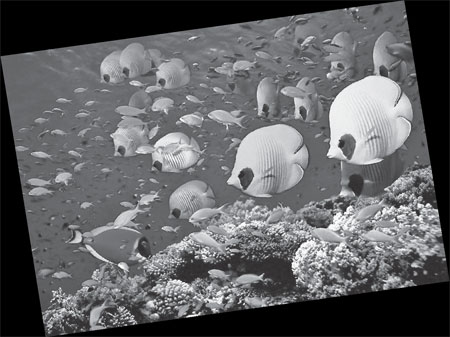|
May 22 was International Biological Diversity Day:
If tomorrow comes
Aditha DISSANAYAKE
Now is the time humanity needs to ask
itself: is life on earth being treated with the respect and care it
needs. Are we doing enough to protect the plants and animals around us,
and in so doing, our own health, food security, well being, and
livelihood?
 |
|
Living
wonders of nature |
“The world is too much with us,” wrote William Wordsworth more than a
century and a half ago, “late and soon, getting and spending, we lay
waste our lives.” Had he lived today he could well have written, “we lay
waste our world.”
For, the projections for planet earth, as we reach the mid 21st
century, are dire. Many environmentalists believe we are reaching what
is called ‘tipping points,’ where irreversible damage is going to be
done to the planet, so much so that the day might soon come when we no
longer will have a tomorrow.
If you think this is an exaggeration, think again. Scientists have
calculated as many as 50 plant species disappear each day, and that
earth's biodiversity could be reduced by 10 percent by the year 2015.
According to the “Living Planet Report” by the conservation group
WWF, biodiversity has decreased by an average of 28 percent globally
since 1970 and the world would have to be 50 percent bigger to have
enough land and forests to provide for current levels of consumption and
carbon emissions. Unless the world addresses the problem, by 2030 even
two planet Earths would not be enough to sustain human activity.
Even though the Rio Earth Summit that formed the Kyoto Protocol 20
years ago aimed at cutting planet-warming carbon emissions, global
average temperatures are on track for a “catastrophic increase” by the
end of the century, says the WWF report.
Explaining further, the author Jim Leape, in a statement to Reuters
says “We've built an economy over the last century that is built on
fossil fuels and on a premise that the
Earth's resources could not be exhausted. You see that conspicuously
in the case of the oceans, where we've been taking fish as if there were
no tomorrow, as if fish would just always be there.
Secondly, we're doing it in the context of a marketplace that
continues to send the wrong signals. So many of the costs that we're
talking about are not built into the prices you see ... Markets can work
well if prices are telling the truth but at the moment they don't, in
hugely important ways.”
In other words, the products and services in the market today do not
add the environmental cost to their prices, which means no one today
pays for it. We live on long term credit and our future generations
would have to pay the price with interest.
Time for changes - changes that will involve a wholesale revolution
in the way humans do business, consume, and think about their lives -
the kind of changes the Turtle Conservation Project (TCP) initiated
at Rekawa, Netolpitiya, Tangalle in 1996. Since its inception the TCP
has identified that a major challenge faced by conservationists
specially when it comes to marine diversity is the task of reconciling
the needs for biodiversity conservation with that of the livelihood
security of hundreds of people. Current policies and programmes on
conservation, such as protected areas, have certainly helped to conserve
biodiversity against severe threats, but they need to be much more
sensitive to the dependence of the people living in these areas.
According to Thushan Kapurusinghe, Project Leader, and co founder of
TCP, ‘turtle night watch’ nature tourism initiative was launched as a
self sustainability exercise along with the conservation programme at
Rekawa. “Local villagers were trained as tourists’ guides and recruited
on the beach while working as turtle nest protectors.” says
Kapurusinghe.
The programme used sea turtles as a charismatic ‘flagship’ species to
generate income to continue the programme and also to expand its other
community development activities. In May 2006, Rekawa beach was
officially declared as a Sea Turtle Sanctuary by the Department of
Wildlife Conservation as a direct result of TCP's conservation efforts
and campaigns. The programme received several global awards in
recognition of its sustainable tourism practices.
Kapurusinghe, who has extensive working experience in marine and
coastal resource management says The Green turtle (Chelonia mydas),
Leatherback turtle (Dermochelys coriacea), Olive ridley turtle
(Lepidochelys olivacea), Loggerhead turtle (Caretta caretta) and the
Hawksbill turtle (Eretmochelys imbricata) come ashore to nest on the
beaches of Sri Lanka.
All 5 species are listed by the World Conservation Union as either
critically endangered or endangered. Yet, despite this international
legislation and the local protection of marine turtles by government
legislation since 1972, marine turtles are still being extensively
exploited in Sri Lanka for their eggs and their meat. In addition,
turtle nesting beaches (rookeries) are being disturbed by tourist
industry development and feeding habitats.
Kapurusinghe points out that the Community based ecosystem
conservation approach concept at Rekawa is well worth recognition
especially this year when the theme of the International Biological
Diversity Day 2012 is Marine diversity as the other existing
conservation approaches in Sri Lanka (and in most other developing
countries) heavily rely on law enforcement and not on the participatory
approach for conservation.
In case you forgot, last Tuesday was International Day for Biological
Diversity, the day of celebrations to appreciate the other occupants of
the planet, it is not too late to do something about it - try to
encourage companies to adhere to certain standards, build markets that
support sustainability, help the TCP, or if Rekawa is miles too far and
watching turtles at night, impossible, at least drink a cup of tea
(organically grown and Rain Forest Alliance Certified) as a toast to
“our other living companions on planet earth”. Ayu Bo Wewa, planet
Earth.
[email protected]
|



